Michigan doctor says he's lost 20 family members in Gaza bombardment
Emad Shehada's sister in Gaza said she could smell the blood of their 12 family members, including a child, killed Wednesday night in an Israeli airstrike that hit the home next to hers.
The metallic smell grew stronger when she discovered portions of human flesh that crashed through a window of her southwest Gaza home.
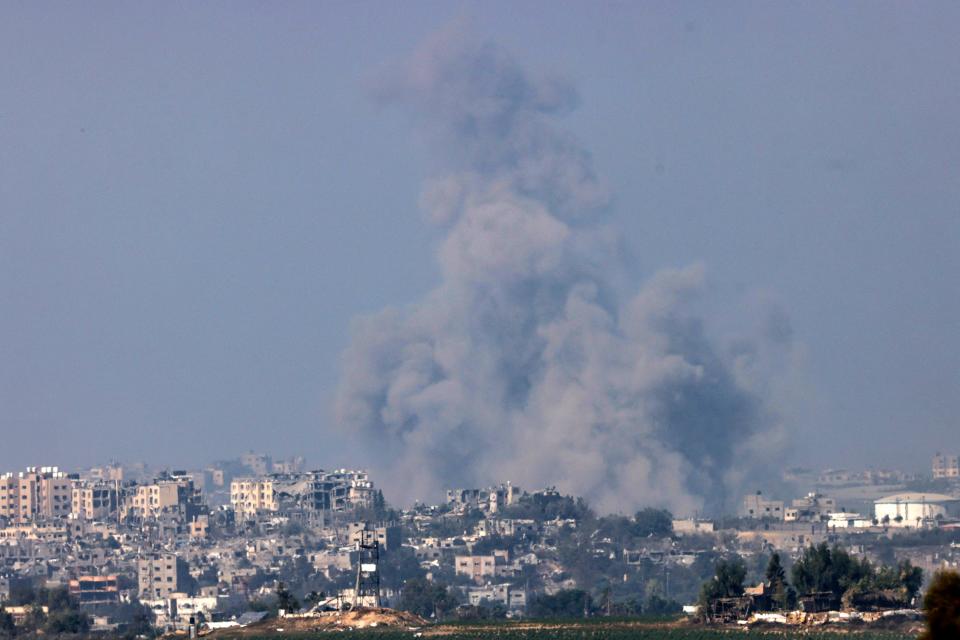
She could see the limbs of her relatives in the rubble. They were killed while praying, she said.
The family lost eight others, some children, just days prior, in the bombardment of the Gaza Strip, Shehada said.
Shehada, a local pulmonologist, said he has felt helpless and hopeless since war broke out between Israel and Hamas on Oct. 7. It's a hopelessness that keeps "creeping into my soul every day," he said.
"There’s nowhere to go. Families are hiding together, and they are going to be targeted together," said Shehada, 47, of West Bloomfield.
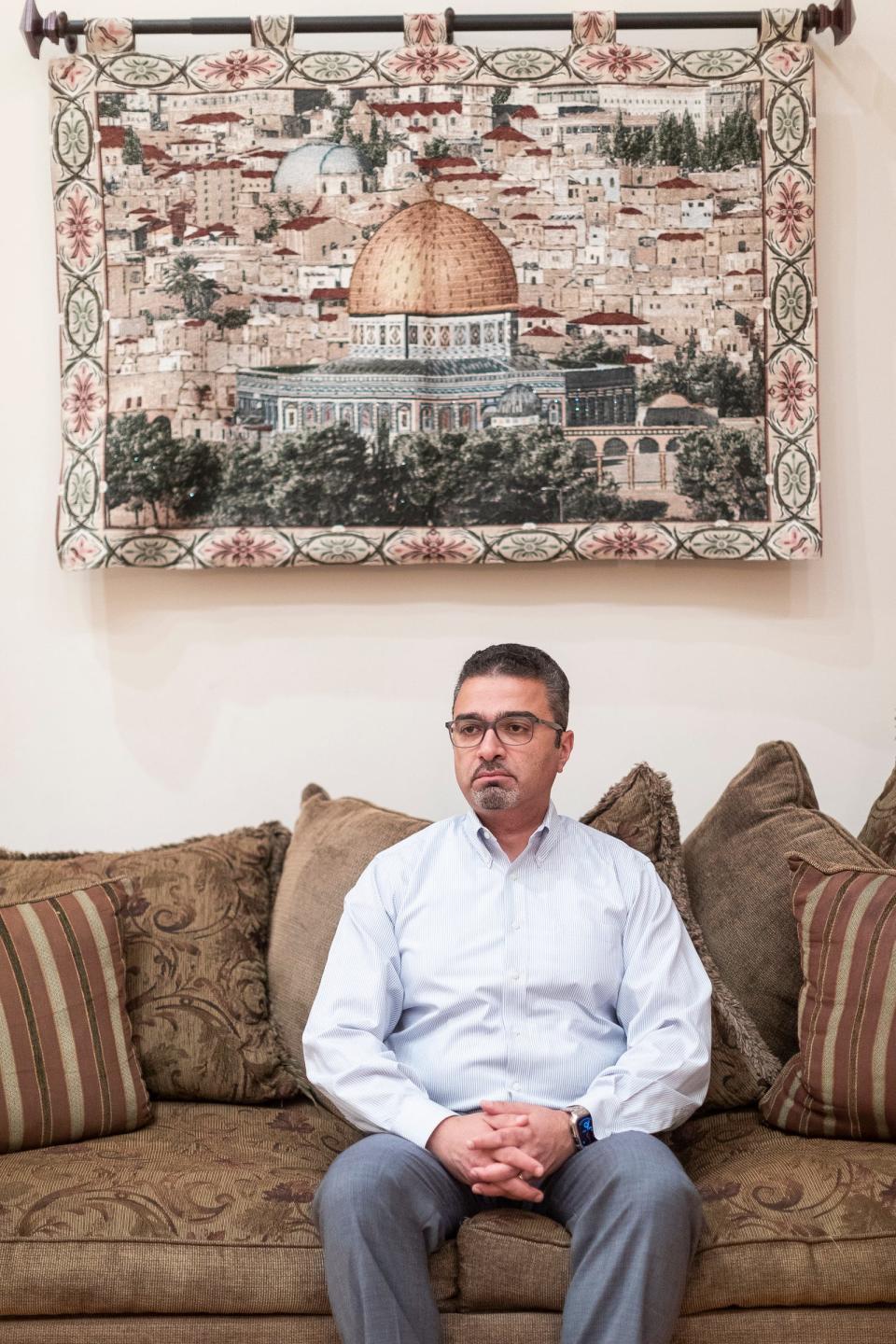
He's one of many metro Detroiters with ties to Gaza and Israel feeling the effects of the war. Nearly 9,000 Michiganders reported Palestinian ancestry in the 2020 census.
More: Census: Arab Americans now a majority in Dearborn as Middle Eastern Michiganders top 300K
More: Michigan woman whose brother was killed battling Hamas shares story
Shehada hasn't taken a break from work at his private practice in Rochester Hills — in part because he says he has an obligation to his patients, but also because the second he comes home, "everything comes back," he said. When he's not working, he's at home anxiously watching the Arabic news channel Al Jazeera, sometimes turning off the TV, frustrated with what he'd witness, only to turn it back on 10 minutes later.
About 1,400 Israelis were killed and 220 hostages taken in the initial Oct. 7 Hamas attack. Among the hostages were 12 Americans, 15 Argentinians, 12 Germans, six French and six Russians, according to the Israeli government.
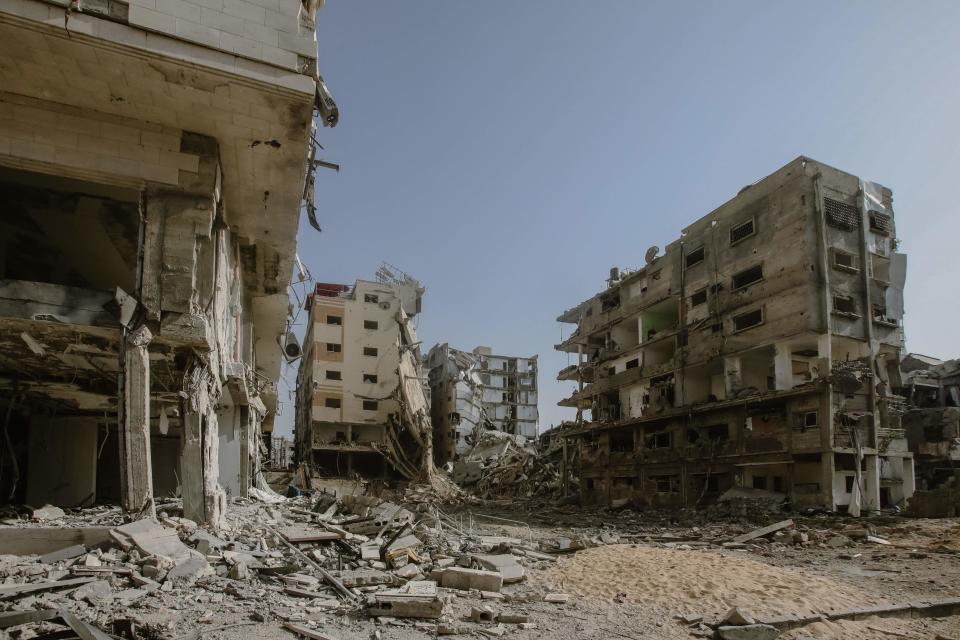
Israel responded with a bombardment that has killed more than 7,000 people in Gaza, nearly 3,000 of them children, according to the Palestinian Ministry of Health in Gaza, which has been closely tracking deaths there, aided by names written on the arms of Gazan children so they can be identified if killed. Gaza is home to 2.3 million people on a strip of land about the size of Detroit.
In an Oct. 21 airstrike, Shehada's cousin, Mohammad Ahmad Khrais, and three of his children were killed, the doctor said. Their names where Yasmeen Khrais, his college-age daughter, and Baha Aldein Khrais and Abdullah Khrais, his teenage sons. Khrais' wife is hospitalized with severe burns to her face. Two of their children survived — they were out trying to find food and water.
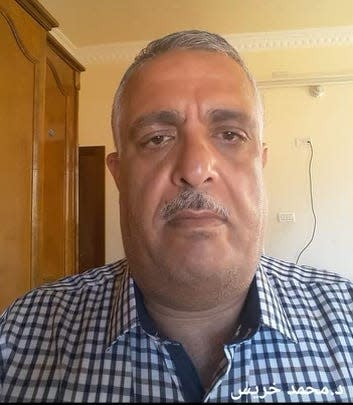
Shehada's sister in Michigan broke the news of the first deaths to him over the phone right as he was about to leave to take his three teenage children to their local Islamic community center. Shehada froze, flooded with shock, fear, sadness. He went silent for a few moments, then held back his pain to stay strong for his children.
In the days that followed, as the death toll rose, Shehada became an emotional mess, he said.
Two more second cousins were killed Oct. 23: Mayar Shehada, who was pregnant with her first child, and Mennah Shehada. The two women had lost their father in 2007 to Israeli airstrikes. Two elementary-age children in Shehada's family were also killed Oct. 23: Mayan Shehada and Bana Shehada, he said.
"We are not counted as humans. Everything is just shattered and gone now," Shehada said.
He fears one day, his sister, Asmaa Shehada — who is sheltering in her Al-Zawaida, Gaza, home with her husband, two young daughters and about 50 other loved ones — will also be killed.
Every day, Shehada wakes up and asks himself "is this going to be the day that I get the bad news?"
The last time Shehada spoke on the phone with his sister, she told him she was strong, but at the end of the conversation, she could not hold back her tears. Shehada cried with her. He had no words.
And even though comforting people during times of death and mourning is part of Shehada's job as a physician in critical care, he hasn't been able to bring himself to hear his sister's voice since that phone call more than a week ago. They only text now.
"I can't hear her voice one more time like that," he said.
Shehada hasn't heard from his family since internet and communications in Gaza were shut down by Israeli authorities Friday night, cutting Palestinians in Gaza off from the outside world as Israel's bombardment intensified.
"I don't know if they are safe," he said.
"Utter silence."
'Psychological warfare'
Shehada said that during the day, his family in Gaza scrambles for food and water. They've been eating a lot of eggs and potatoes. There's no bread. All the bakeries around his sister's home have been destroyed.
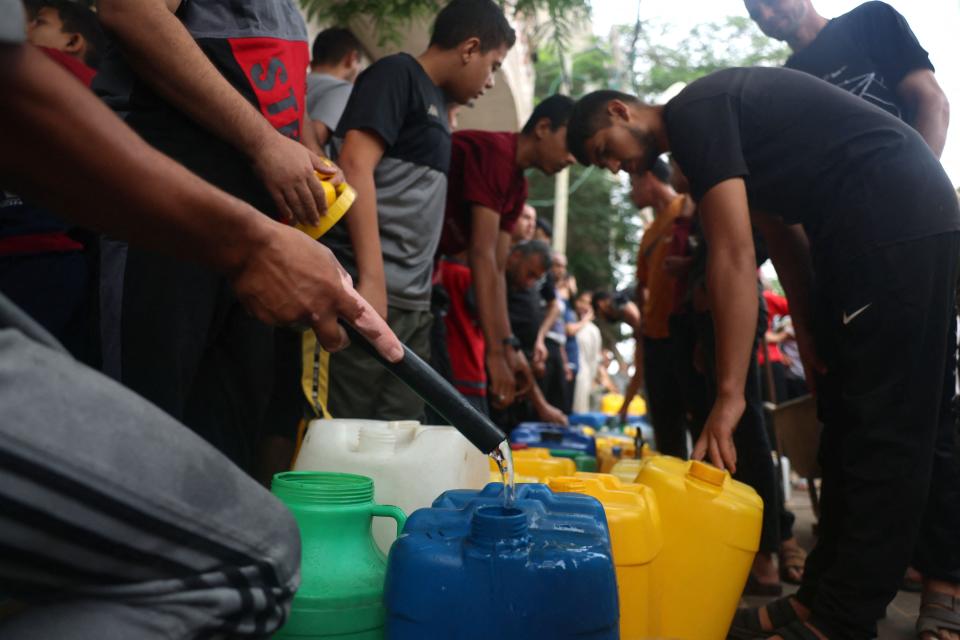
Israel implemented a blockade around Gaza back in 2007, and in the weeks since the latest war began, the strip has been entirely cut off from food, water, fuel and electricity with little humanitarian aid allowed, according to the Associated Press.
The water that comes out of the Shehada family's faucets appears to be contaminated by sewage water, Shehada said. His sisters-in-law have fallen sick from drinking the water.
At night, they don't sleep. They know that's when the explosions are coming.
"That's part of the psychological warfare," Shehada said. "Israel is trying to break their will."
The Red Cross has warned that hospitals in Gaza may soon become morgues. They are on the verge of collapse, with doctors performing procedures without electricity, on floors and without enough anesthesiology, the Associated Press has reported. A lack of medicine and clean water has often left doctors needing to perform amputations to fight a growing number of infections.
Mosques, a church and ambulances have been struck. Areas in the southern region of Gaza, where Israeli authorities told Palestinians to seek shelter as it sought to evacuate the north, have also been hit.
Israeli officials have said the goal of the escalating military strikes is to eliminate Hamas, the militant group and political force in the territory. But some human rights groups and United Nations experts have called the escalation a form of "collective punishment."
"Ethnic cleansing, that's what it is," Shehada said.
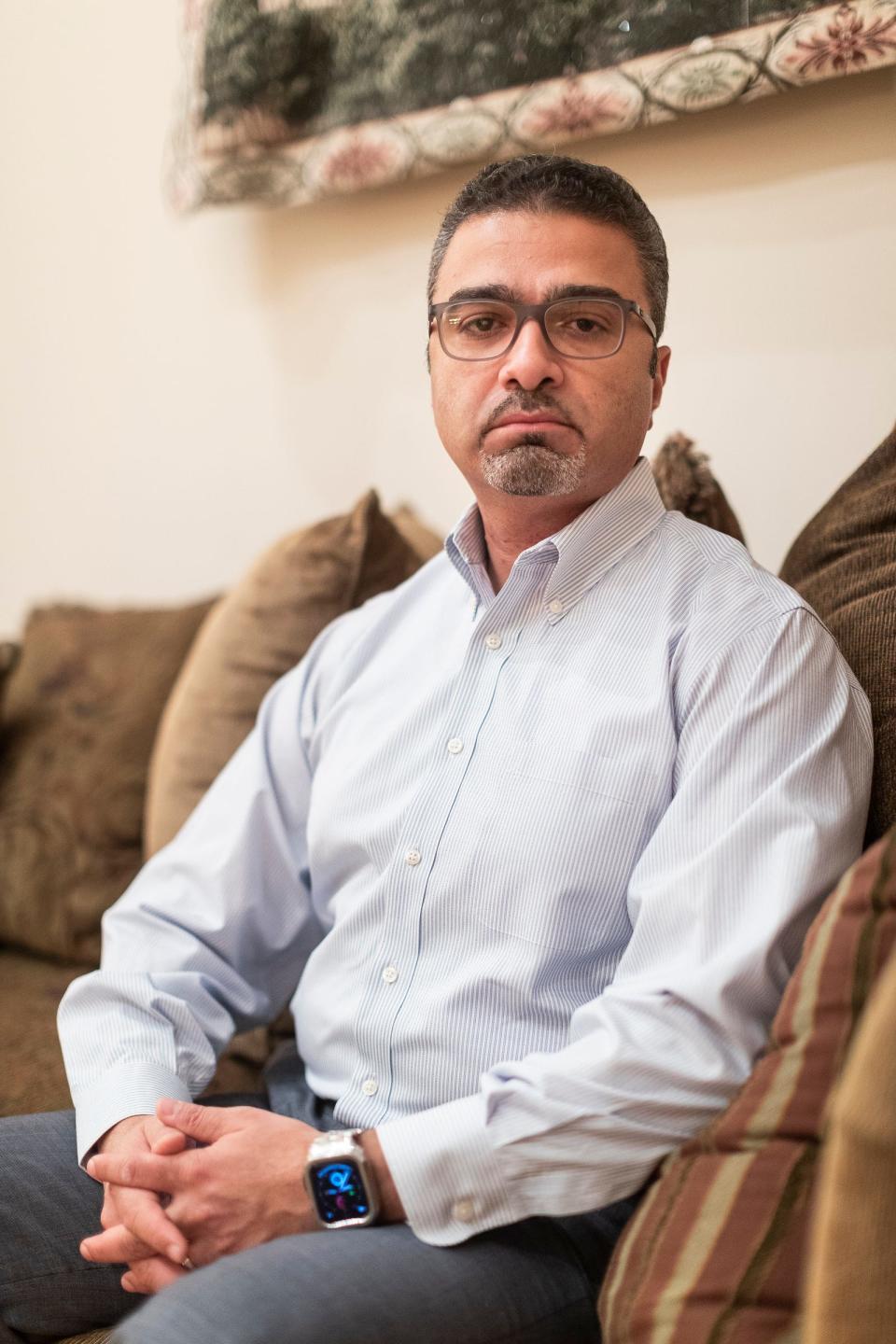
Through it all — the fear, the death, the destruction — Shehada said his sister and their family are trying to stay strong. They keep praying. They keep hoping.
Shehada wants U.S. officials to know that his family members who were killed lived, that they had hopes and ambitions. They wanted to create a better world for their kids, he said.
"Ignoring the massacre, the genocide of the Palestinian people — history will not forgive you for this.”
The Gaza-based Ministry of Health on Thursday released a detailed report on the casualties with names, ID numbers, ages and genders for Palestinians it says have been killed. United Nations experts say the Gaza ministry's death and injury counts have long held up to international scrutiny. The U.S. State Department has also cited the ministry’s figures.
Shehada provided names and photos of his dead relatives to the Free Press, but because of the internet blackout implemented Friday by Israeli authorities, Ministry of Health records could not be accessed for cross-checking.
'Is this the last time?'
Shehada's parents were born in Al Qastina, a village which stood outside of Gaza. Their village is gone now — wiped out in 1948 as Israel was formed, displacing hundreds of thousands of Palestinians.
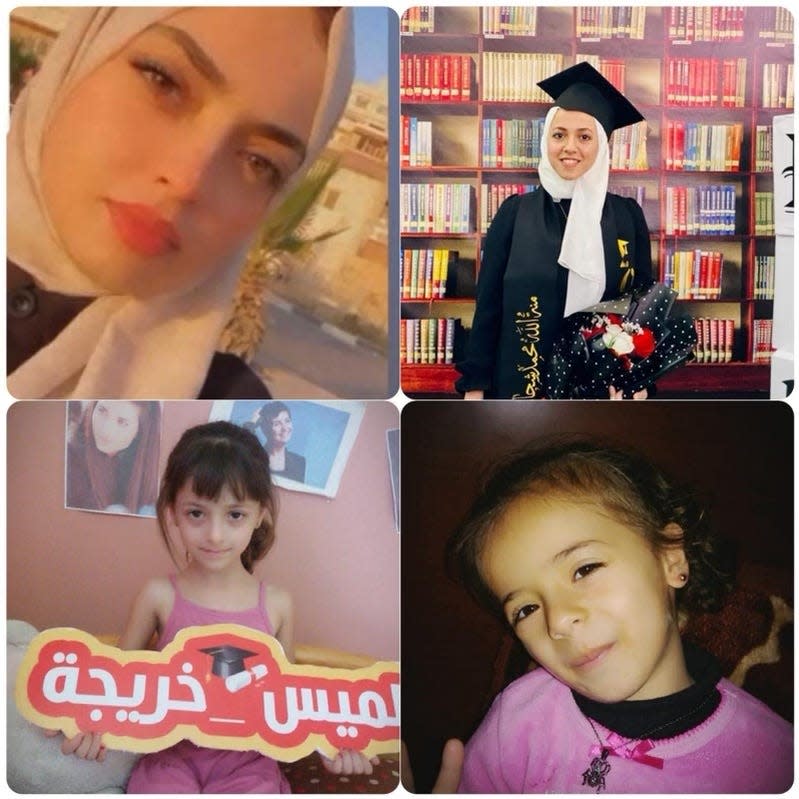
When his father was 3 years old, the family became refugees in Gaza. Eventually, they moved to Kuwait, where Shehada was born and raised, until war broke out there. Then Syria, until war raged there as well.
In Syria, Shehada graduated from the University of Aleppo School of Medicine in 1999. He immigrated to the United States to practice medicine in 2000 and trained at Wayne State University and Detroit Medical Center.
His younger sister returned to Gaza in 2021. She had been living in Dubai with her husband, who was struggling to find work. With no work, expired visas and no citizenship status in any country, they were sent back to Gaza.
His parents and eldest sister eventually moved to West Bloomfield with Shehada in 2014.
Shehada remembers his father sitting on his couch in West Bloomfield for the first time, wondering whether he'd ever be displaced again. “Is this the last time?" his father asked him.
“You could see it in his eyes, he's done with this. He can't do this anymore," Shehada said.
Shehada went to Gaza a few times during his childhood and doesn't remember much. The last time Shehada went to Gaza was in the early 1980s, when he was 6.
But two memories are ingrained in his head:
His father took him to see the Al Aqsa Mosque in Jerusalem, one of Islam's holiest sites. His father said to him, "look at it closely, because this could be the last time you see it."
The second memory Shehada can't shake is being searched at an Israeli checkpoint at 6 years old. When Shehada tried to grab his shoes, thinking the search had ended, an Israeli soldier pointed a gun at his head, he said.
One day, Shehada said he'd like to go back with his three children. He wants them to see where the family came from.
"We need to see our home. We need to continue to have that connection so our stories are not forgotten, so that they do not die with each generation," Shehada said.
The Free Press is committed to telling the stories of metro Detroiters directly impacted by the war in Gaza. To speak to a reporter, email gazawar@freepress.com.
This article originally appeared on Detroit Free Press: Gaza bombardment has killed 20 members of Michigan doctor's family

